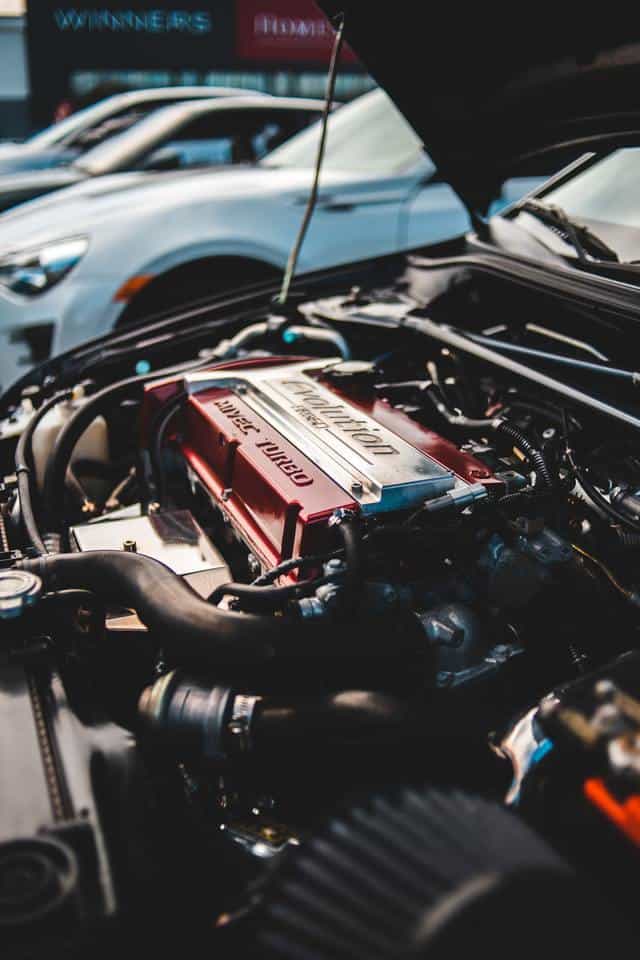Last Updated on October 25, 2023 by Chase Manhattan
Has your car battery ever gone dead? Well if you don’t use your car regularly, it is highly possible that you have faced this before. Many of us have been stuck with a dead battery, more so you can never be sure when the battery is full. How long should I let my car idle to charge its battery?
A car battery can charge while the car idling. The alternator will be able to charge the car. It takes 2 hours to charge a flat battery with average amps while the car is idling. If your battery keeps dying after, it’s time to replace it. This is assuming it’s a regular 12 volt car battery.
This all depends on how rarely we use the car and how long before the battery flats out. For some people, it may take less than 2 hours, for others more. The type of battery, the alternator, and devices that draw power impact how the battery charges. Note that a fully charged car battery should have 12v-13v (volts) at rest when in top condition.
Quick Navigation
Does Car Battery Charge While Idle?
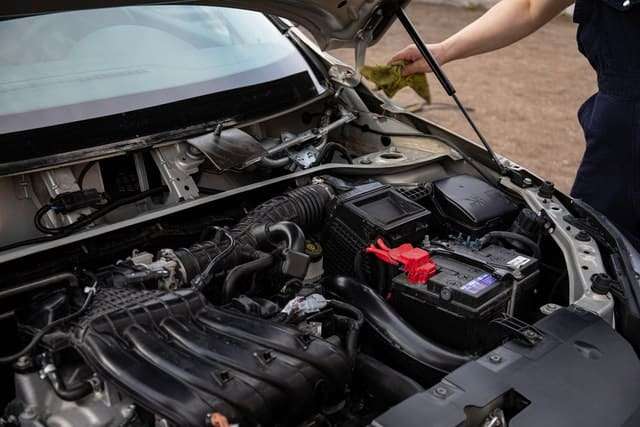
Yes, your car battery will charge from the idling engine because of the serpentine belt running the alternator which charges the vehicle’s battery. Car batteries charge even with an idle car and a stock alternator. The alternator charges the battery at idle speed whenever you leave the car running. It’s also what runs the other electrical components in your car, like the fuel injection system.
As I mentioned, the alternator is driven by a serpentine belt. As long as the engine is on, the alternator will keep on charging the battery. When you move above idle speed, the engine’s crankshaft will spin faster, moving the alternator faster, which will charge the battery faster.
It is a give-and-take sort of relationship between the two. But it is safe to keep a few pointers in your mind.
To charge the battery, you need to make sure that the engine is running and idling. You also need to make sure that your alternator is in good condition for a healthy charging system that is pushing enough voltage. Older cars are more prone to a weak charging system.
Even if your alternator is in good condition, a completely dead battery won’t charge up. If this is the case, it’s time for a new battery. An idle battery will quickly diminish. Battery voltage should remain around 12.6 volts when in good condition. A car battery while idling should be from 13-14volts as the alternator is being run to charge the battery quicker. You can tell that an alternator is working fine when the battery voltage increases at higher RPM. If you have the same voltage of 12.6 volts, it’s possible that your car’s alternator is faulty. It is good to keep the battery charged on a regular basis, at least 12.6 volts is the resting baseline we’re shooting for.
That’s why you need to test both your battery and the alternator. This is done with a simple device called a multimeter. We have a complete guide on how to test a car battery and an alternator.
How Long Does It Take
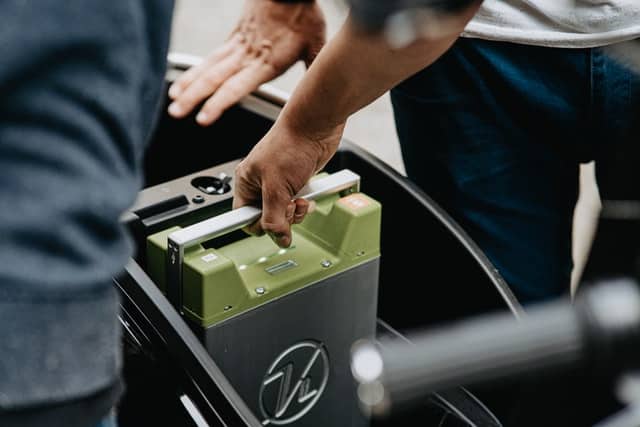
The time it takes to get a car battery to completely charge, with the engine idling, depends on how empty the battery is. A dead car battery takes the longest to charge. Half-empty batteries will charge faster. This is why it’s recommended to keep your battery in good health by allowing it to completely charge, and therefore function properly.
[How To Keep Rust From Bubbling In Your Paint]It can take 30 minutes to 2 hours, give or take, to charge a car battery with the engine idling. As long as there’s no drain on the battery and it’s healthy, it shouldn’t take more than 2 hours to charge the battery to 80%.
Problems with charging arise when you have a lot of drains hooked up to the battery.
The car’s alternator will turn on at idle but does not produce the maximum current. So, if you are trying to pull out a high amount of power from the battery during idle time, the input charge will be a deficit – or receiving less electricity – when working properly.
This may cause important components like the car’s computer, its alarm system, or the ignition to fail when the engine is running.
From this, we can conclude that the battery gets charged slowly at idle and it would be the wiser decision to not place a high electrical drain when it is idling.
How Long To Idle To Charge Car Battery
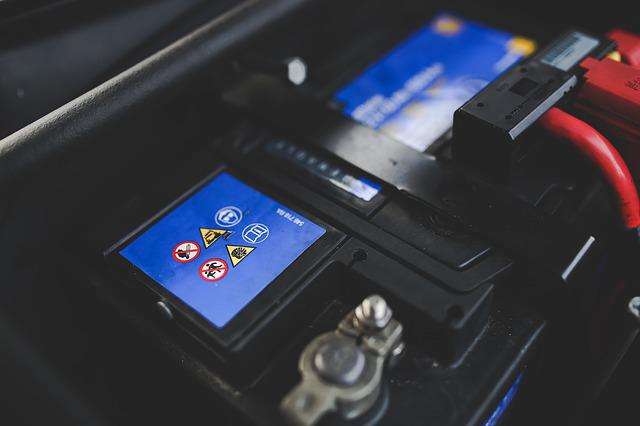
While some people would recommend idling to charge car batteries, it is not widely recommended.
In older vehicles, idling your car for 15-20 minutes can give your battery enough charge to restart your vehicle, but it is not always great for your vehicle.
In most vehicles, there are battery management systems in place that will extend your battery life. These technologies also work to limit your car’s ability to charge at low RPMs.
So unless you are traveling at higher speeds, your battery will receive a small amount of charge from idling. When moving at a higher rate of speed, your battery will charge faster.
Idling for too long, like several hours, can cause problems for your car also. It will contaminate the car’s oil faster, which offers less protection for your engine. We recommend to avoid idling for longer than 30 minutes.
It’s far better to drive to charge the car’s battery. Car batteries charge faster this way. Yes, an idle car can charge your car battery while the engine is running, but there are other approaches to take.
Even after considering the fact that your battery is dead, it will not take a lot of time for it to fully charge.
The battery will demand a lot of current because of the fact that it has been discharged. Around 60 amps or more.
[Related Article: What Are The Reasons My Car Battery Won’t Charge]
Does Idling Drain Your Battery
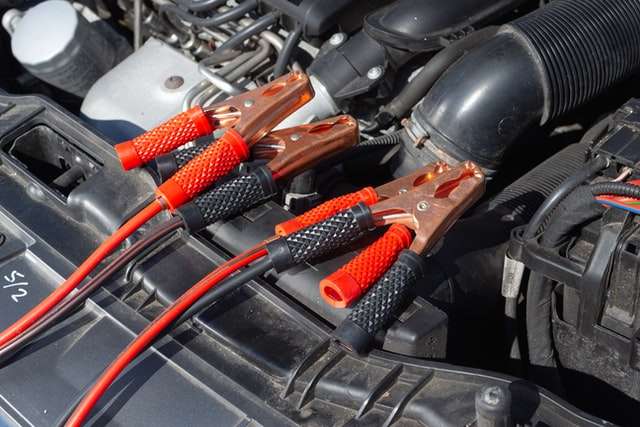
Yes, idling your car for as little as two minutes will be the equivalent of driving a mile! Leaving your car idling will waste not only gas but does not allow your battery to charge.
Not allowing your battery to charge will drain its power during idling.
During idling, your engine and alternator run slowly. The alternator will provide electricity to charge the battery.
However, if you are using high-powered accessories, then the alternator won’t meet the electrical demand. In these instances, your battery will make up the difference and become drained.
Can A Car Battery Die When It’s Running
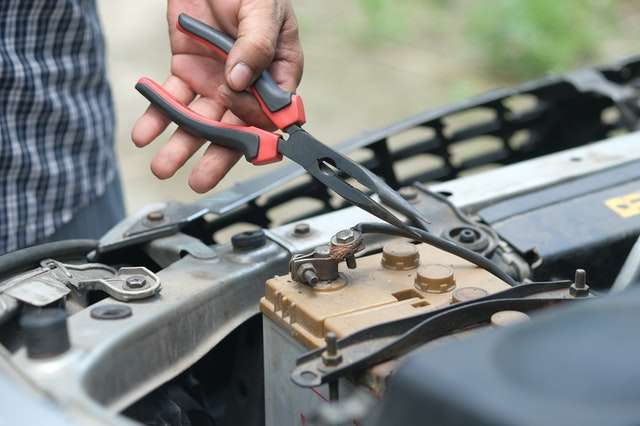
Yes, your car battery can die when it is running. Your car battery’s purpose is to provide the initial power required to start your car’s engine. If your car’s battery is not functioning properly be sure to check your positive lead, and negative lead, on your battery terminals prior to checking the voltage reading. Do note that you should get a consistent reading at low rpms that will change as you accelerate to high rpms. If you have an onboard voltage meter you can check these readings while you drive your car. One thing to note is that each manufacturer uses different electrical systems, so how much charge you need will vary. Check your ownership manual to make sure you’re getting enough charge.
Once the engine is running, the alternator can take the ability to run your car’s electrical system and charge your battery. If your car battery is still not charging, it is possible that you have a bad alternator. You can check this manually, or modern cars will give you security codes on the dash. When you let your car idle, you should not see any flickering lights or inconsistent electronics. A functioning alternator will quickly charge a car battery to 14+volts while running.
If you have an old battery or already damaged any of the six cells, there is an increased chance of it dying while the car is in use. There should be some signs of damage to the battery beforehand, though. Car batteries can also develop shorts internally which will cause a sudden failure, which means that the alternator charge will not be able to maintain the battery charge.
Common symptoms need to jump-start your vehicle regularly, dim interior and exterior lights, and the battery is periodically dying or shutting off the engine.’
Final Thoughts
It is quite possible that you are in that stage of your life where you don’t really need to drive around anymore. Well, you have deserved it, but what can you do about your car batteries? I’d always recommend carrying jumper cables so another vehicle can charge your car’s battery, but there are some other considerations as well. Modern vehicles typically come with a roadside kit, so check there first.
You can use a car battery charger, also known as a trickle charger, fully charge your battery to the appropriate level. Unlike a traditional car battery charger, it will not over charge your car battery and you can plug it in and forget the rest. This is recommend for all vehicles to maintain a fully charged battery while sitting for long periods. It’s recommended to drive your car frequently to maintain your battery at full charge, or to allow it to trickle charge over time.
Otherwise, you can always take it around for a spin. Always prefer charging your car battery when you are driving instead of when the engine is idling.
[Related Article: 3 Best Battery Disconnect Switch(Buying Guide) 2022]
Related Questions And Other FAQs
How Long Does It Take To Charge A Car Battery
At idle, you can fully recharge a car battery in 75 minutes when at 50% capacity, or about 2.5 hours when fully discharged. A battery charger may take longer to charge the battery, but will vary from product to product. You will want to keep your car battery charged whenever possible.
How Long Can A Car Battery Sit Unused Before Charging
Older vehicles with few electronics on board can go 3 to 4 weeks until the battery is too weak to start the engine as it requires more energy when first starting the car. If you let it sit too long without a smart charger, your battery may be too weak to even charge the battery. This is why a battery charger is recommended for typical battery maintenance.
What Is The Lifespan of a Battery?
The simple answer, you can see a car battery last about five years when maintained appropriately with a car battery charger. For car batteries, this can vary if you live somewhere with cold weather, but this can be less effective when stored in a closed garage. We recommend your charge the battery often.

